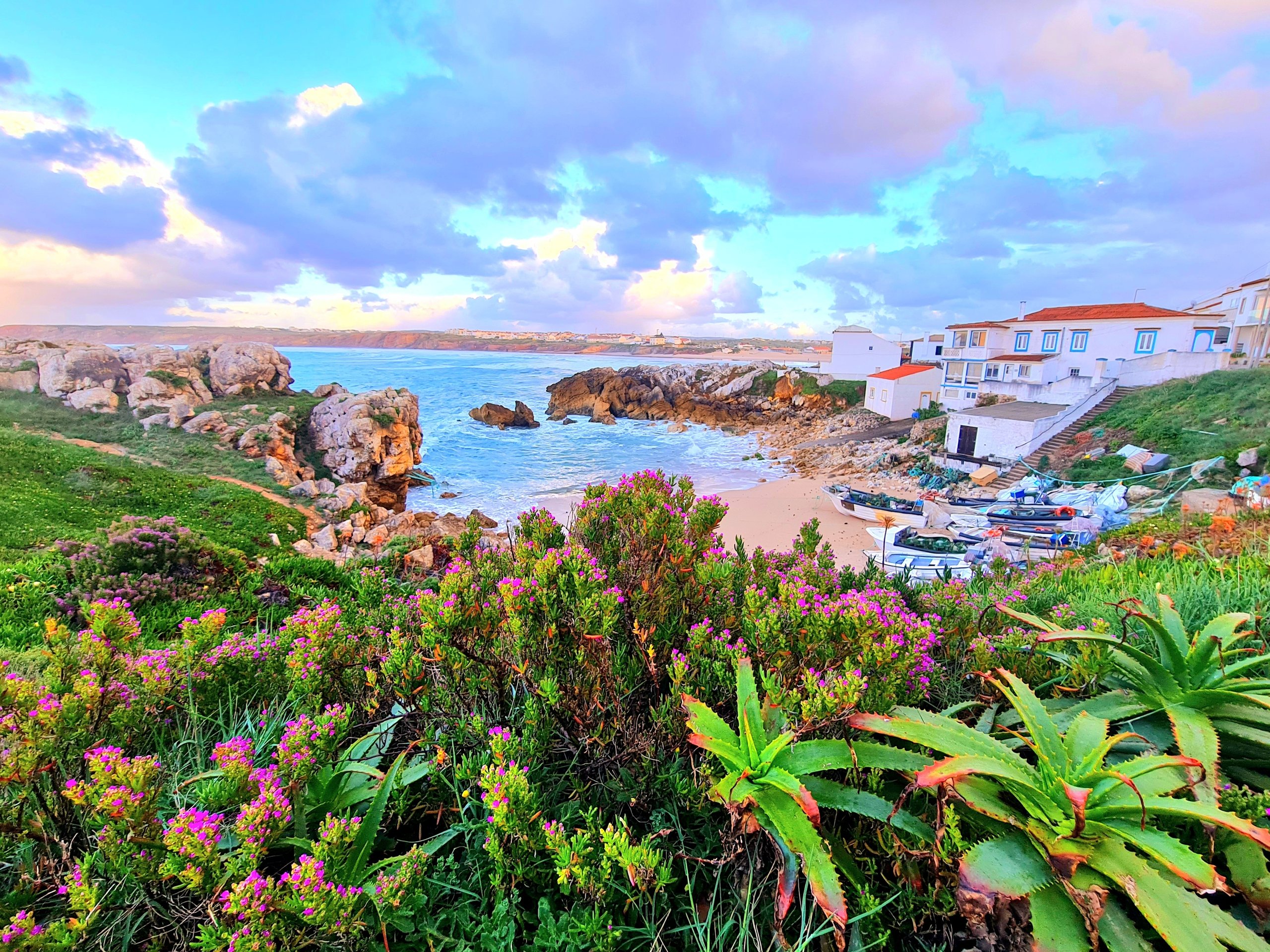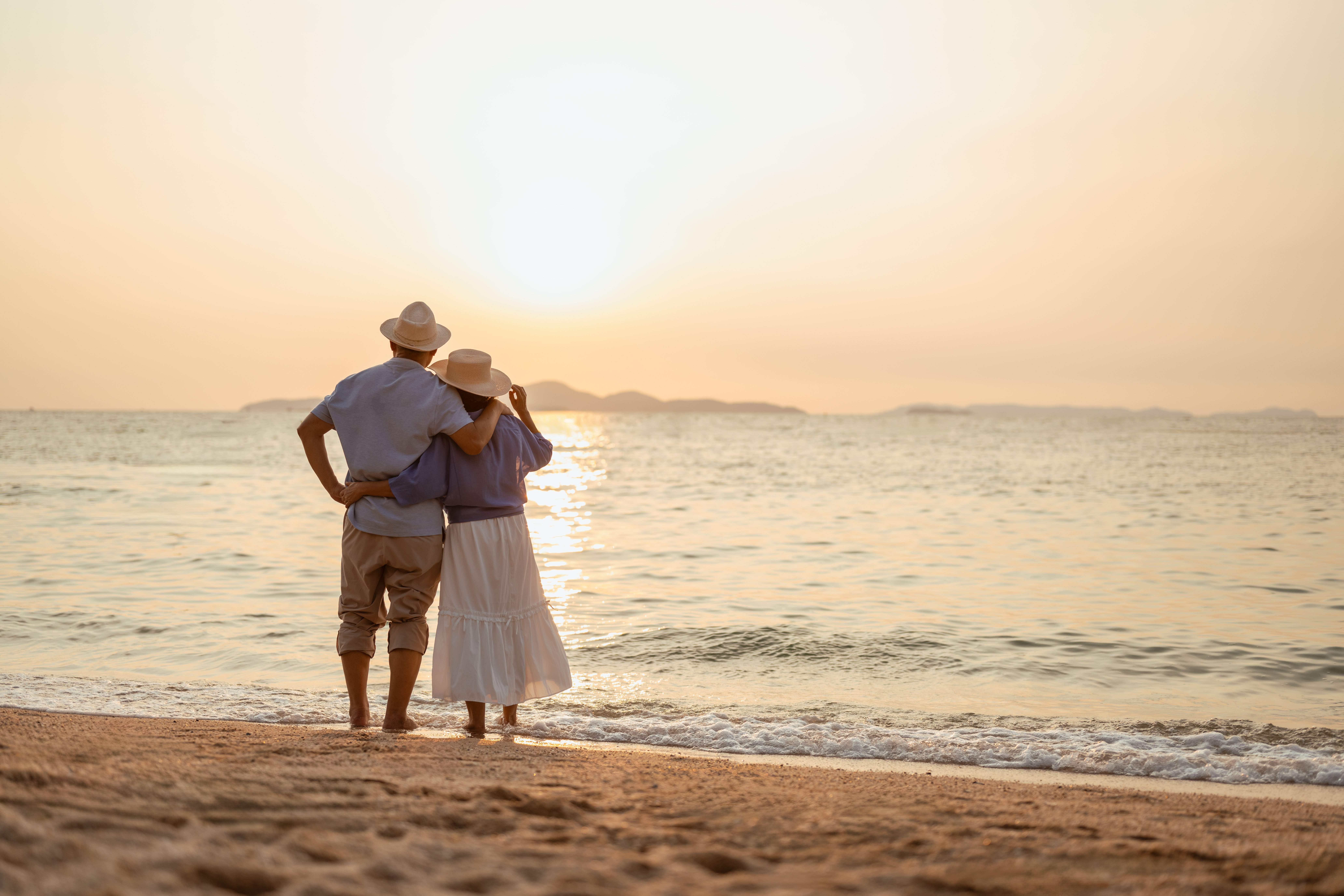Thinking about buying a home in Lagos in 2026? This friendly, year-round town on the western Algarve gives you sandy beaches, a lively local scene and a reassuringly straightforward buying process. If you’re weighing up your options for a permanent move, a holiday base or a reliable rental property, Lagos is well worth a closer look.
Lagos has earned its reputation as one of the Algarve’s most appealing places to buy, thanks to its coastal setting, lively local atmosphere and strong property market. If you’ve spent time here before, you’ll know how enjoyable day-to-day life is here – from morning coffees in the walled historic centre to late-afternoon strolls along Meia Praia. It’s a practical, welcoming town that balances convenience with plenty of character.
In this guide, you’ll find clear, practical advice on what Lagos offers buyers in 2026, from average house prices and neighbourhood comparisons to a step-by-step overview of the buying process.
Download the Portugal Buying Guide
Contents

Why buy property in Lagos?
Lagos is one of the key property hotspots on Portugal’s southern coast. Its appeal lies not only in its beautiful beaches, but in its mix of modern amenities, relaxed atmosphere and charming historical centre. Although it attracts tourists, Lagos is very much a working town with year-round life, making it a strong contender for relocation or investment.
Unlike smaller resorts that largely shut down in the off-season, Lagos maintains a bustling local scene. Its cobbled old town is protected by 16th-century walls and is home to family-run businesses, cafés and independent art shops. The marina area presents a more contemporary face, filled with bars and restaurants aimed at locals and visitors alike.
Beaches like Praia da Dona Ana and Praia do Camilo are famous for their golden sands, clear waters and spectacular cliffs. The five-kilometre stretch of Meia Praia appeals to those after space and water sports. Further inland, buyers can find more spacious homes with views of both countryside and coast. For those wanting a steady rental income, Lagos’ popularity makes this a prime market for holiday lets and long-term tenants alike.
How much does property in Lagos cost?
Property prices in Lagos reflect demand for its mix of lifestyle and location. Entry-level prices for apartments within walking distance of beaches or the historic centre begin from €200,000. These typically offer one or two bedrooms and are popular with both owner-occupiers and short-term renters.
For townhouses, particularly older ones needing some modernisation, expect to pay upwards of €300,000. Modern villas with private pools or garden plots often start around €500,000. Luxury homes or new builds with sea views push well beyond €750,000.
While prices are considered high for the Algarve region, they remain below Lisbon or Cascais levels. Investors are drawn by strong occupancy rates, especially during the long summer season. Rental yields vary by amenities and location, with properties near Meia Praia or the marina fetching premium rates during peak seasons.
Remember to budget around 8–10% of the purchase price for taxes, legal fees and completion costs. This includes property transfer tax (IMT), stamp duty and fees for your legal representative or notary.
Top areas for buying property in Lagos
- Centro Histórico (Old Town): This atmospheric neighbourhood is filled with narrow lanes, Portuguese architecture and a laid-back charm. Property options range from apartments in converted buildings to traditional houses on quiet lanes. This area suits those wanting walkable access to cafés, galleries and evening entertainment.
- Meia Praia: Known for its wide sandy beach, this neighbourhood offers modern developments and beachfront properties. You’re still close to central Lagos but in a quieter, more residential setting. Popular with holidaymakers and investors alike.
- Porto de Mós: Offering residential calm without being remote, Porto de Mós attracts those looking for detached villas or townhouses with excellent sea views. The beach here is less crowded, making it a favourite for families.
- Praia da Luz: Located just west of Lagos, Luz has a more relaxed village vibe. The bay is calm and family-friendly. Property types include sprawling villas, compact holiday flats and newer gated communities. A good option for semi-retirement or second homes.
- Boavista Golf & Spa Resort: Set on a full 18-hole course, this gated estate includes luxury villas, townhouses and apartments. Residents can enjoy sporting facilities and a secure, maintained environment – a strong choice for part-time residents or those after privacy.
- Funchal Ridge: Elevated above the town, this area is ideal if you want panoramic views and sizeable plots. Homes here are often custom-built with larger footprints. Suited for buyers prioritising space, peace and long-term comfort.
The climate in Lagos
Lagos enjoys a Mediterranean climate with a coastal influence. Summers are hot and dry, while winters are mild with some rainfall. In July and August, daytime highs average around 29–30°C, with long daylight hours. Sea breezes help to cool things down, particularly on beachfront properties.
Spring and early autumn are often ideal for house-hunting, with warm temperatures averaging 20–25°C and fewer crowds. January and February are the coldest months but still reach highs of around 16–18°C. Evening temperatures in winter can drop to single digits, particularly inland.
Thanks to plentiful sunshine – averaging over 300 days per year – outdoor living is a major part of the Lagos lifestyle. With nearly year-round appeal, it’s easy to see why homes here are in consistent demand from both residents and rental markets.
Getting to Lagos
Lagos is conveniently located just over 90 kilometres from Faro International Airport. The journey by car takes about one hour via the A22 toll motorway. Faro airport connects to major UK and European cities via numerous low-cost and national carriers, especially between March and October.
For long-haul routes, Lisbon Airport is approximately 2.5 hours by car and handles intercontinental flights. A train from Lagos to Lisbon takes between 4 and 5 hours, requiring a change at Tunes. Buses are also available from both Faro and Lisbon, though journey times are longer.
Once in Lagos, public transport is an option for getting around town, though many residents and visitors prefer to drive. Parking in residential areas is generally available, though tighter in the Old Town.
Steps to buying property in Lagos
The process of buying a home in Lagos is similar to other regions of Portugal, with a few steps that international buyers must follow:
- Define your budget
Consider the full cost of buying, including taxes, legal fees and currency exchange if applicable. If you’re using finance, speak with a lender or mortgage broker early and obtain approval in principle. Speak to Smart Currency Exchange to make your budget immune to shifting exchange rate.
- Research locations
Think about your lifestyle goals – are you prioritising rental income, beach access or long-term living? Look into amenities, noise levels and year-round activity in your chosen neighbourhoods.
- Start an online search
Use our property portal and consult our local experts. Work with estate agents who are experienced in working with foreign buyers. Ask for recent property valuations and occupancy details where relevant.
- Visit Lagos for viewings
Once you’ve shortlisted properties, book a dedicated viewing trip. Local agents will arrange multiple viewings and help you understand the range of options within your budget. For more information, download our Viewing Trip Guide.
- Make your offer and secure the property
Offers are submitted in writing through the estate agent. If accepted, you’ll sign a reservation agreement and pay an initial deposit. This gives you time to complete legal checks.
- Conduct due diligence
Work with a bilingual lawyer to verify legal ownership, debts, and the status of renovation or rental licences. If needed, give your lawyer power of attorney for signing during completion.
- Sign the promissory contract
This formal agreement details the terms of the transaction, and a further deposit is paid – usually totalling 20–30% of the purchase price.
- Completion at the notary’s office
This is when the deeds are signed, the remaining balance is paid and the property officially becomes yours. You’ll also receive a tax number and register the home in your name.
Buying in Portugal is secure and straightforward if you have expert support. Always speak with a tax adviser and currency specialist as early as possible to avoid avoidable costs or paperwork issues.
Need guidance on where to start? Get in touch with Your Overseas Home for a free consultation today to plan your next move with clarity and confidence.
If you’re still deciding where to buy property in Portugal, our region-by-region guide offers a comprehensive overview of the top destinations across the country. When you’re ready to take the next step, don’t miss our full breakdown on how to buy property in Portugal, covering every stage of the process from research to completion. These expert resources will give you the knowledge and confidence to move forward.
Frequently asked questions
Yes. Foreigners can buy property anywhere in Portugal, including Lagos, with no restrictions. The process is straightforward, and you’ll follow the same legal steps as a Portuguese buyer. You will need a Portuguese tax number (NIF) and a bilingual lawyer to guide you through contracts and due diligence.
Lagos continues to attract steady demand from both tourists and long-term residents, giving investors reliable occupancy and strong seasonal rental income. Properties close to Meia Praia, the marina or the historic centre typically achieve the highest yields. Year-round amenities also help reduce off-season vacancies, making Lagos a strong contender for rental investment.
Property prices in Lagos reflect strong demand for its lifestyle and location, and although they sit at the higher end for the Algarve, they remain below prices in Lisbon or Cascais. Entry-level apartments near the beaches typically start from around €200,000. Older townhouses needing refurbishment usually begin at €300,000 or more. Modern villas with pools or gardens often start from about €500,000, while luxury homes or new builds with sea views can exceed €750,000.









